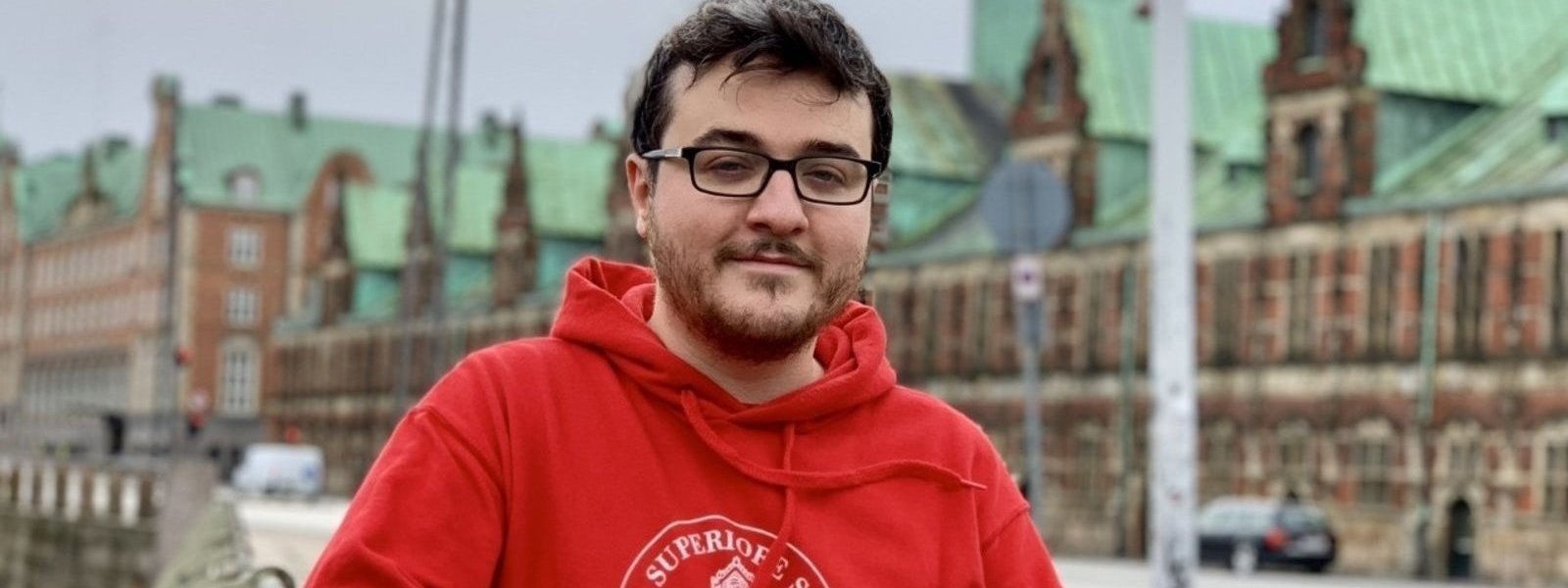Tell us a little bit about yourself...
My name is Jason Park and I completed the MSc Counselling and Psychotherapy in 2018. I am a native Scot and have lived in Glasgow most of my life, except for some brief teaching in China and a brief stint in Wales as an entertainment's manager. I have a Scottish degree and an English Honours, both in musical theatre. I was an actor for 20 years before returning to study at Strathclyde. I enjoy video games, reading, and I am a big fan of horror movies.
Why did you choose Strathclyde for your postgraduate degree?
I chose Strathclyde for many reasons. The MSc Counselling and Psychotherapy is widely regarded and Strathclyde has a global reputation for greatness in counselling research. Also, the MSc is rooted in research as well as practical application of skills, so it offered me more skills that enhanced my career prospects. The fact that the course runs for one year was a large part of my decision to study at Strathclyde. Coming into counselling as a second career, I wanted to immerse myself as much as I could, and one year’s full-time study provided that immersion.
What initially sparked your interest in Counselling and Psychotherapy?
As a performer, I often used similar methods of understanding and empathy, so the transition from acting to counselling did not seem like a difficult one. I had always been drawn to helping others, but occasionally found myself being hurt by doing so. By formally training in counselling, I learned a profession and better boundaries and emotional coping skills for everyday life.
What advice would you give to someone considering studying your course?
The biggest piece of advice I’d give students on the MSc Counselling and Psychotherapy programme is to read your course handbook! As class representative in my year, I was always referring students to it for answers and advice. It’s a great document and it’s revised each year, so it really is indispensable.
Another solid piece of advice is to leave your expectations at the door about what it means to be a therapist. The course gives you all the necessary theory and practice but it also actively encourages you to be a unique practitioner and to play to your own strengths and not be a cookie-cutter professional.
Do you have a highlight from your time at university?
My biggest highlight was a moment in research class. We were learning about methods of research and I had a lightbulb moment about how I would approach the method. It was different to everyone else in my year, but I knew it would work best for me and I was encouraged by the course tutors to follow my hunch. That moment really showed me that I could be my own type of counsellor, my own researcher and that I, being myself, was the best counsellor I could be. It gave me so much confidence and still encourages me to this day.
If a placement was included as part of your course, can you tell us about this and the experience you gained?
Placements were an integral part of my course, and I had 3! Working in placement gave me the opportunity to apply my learning with real clients and ongoing support. The experience was so useful for instilling confidence that I could apply theoretical knowledge to my practice. Also, working with such a broad range of clients through my placements helped me to discover where my passions lay in counselling and helped focus my career.
Where are you working now? And how did your time at Strathclyde help you prepare for this role?
I currently run my own counselling practice called Autonomy Counselling Services from offices in Glasgow City Centre. Strathclyde gave me all the necessary theory and support to be a counsellor in the therapy room and also gave me the skills and knowledge of the business side of things to enable me to run my own practice. I learned note structuring, GDPR compliance, how to insure my company and much more.
What is the best part of your job?
The best part of my job is knowing I can safely help people through some of the most difficult parts of their lives and make a positive difference to so many people.
What are your ambitions for the future?
My current ambition is to become a clinical supervisor to other therapists (I am training for this in September 2020) and to grow my private counselling practice.
I am also looking at a potential way of having a UK-wide network of therapists for the performing arts that is flexible enough to accommodate the lifestyle. As a former practitioner myself, I recognise the complex and unique need for mental health support in the performing arts and wish to give back to an industry I was a part of for so long.
Any final points, or words of wisdom?
Don’t let your worth be determined by what you think a counsellor should be, and don’t ever be scared to take a chance on yourself.
